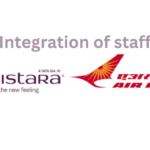In the rat race to appear technologically advanced, are HR professionals forgetting something that’s vital to their existence?
Most organisations have been embracing technology in HR in a frenzy lately, with HR professionals leaving no single opportunity to talk about HR technology jargons, metrics, and technological interventions and so on. While it is good to adopt new technology in HR, in this rat race to appear ‘most updated and learned’ are we forgetting our reasons of existence?
Recently, in an informal gathering of fellow colleagues, a newly- hired young HR executive asked me “What should I do to be successful in HR?” To answer his question, I counter-questioned him, “How many people in your business unit do you know by their names?” He fumbled, as many of us would have in his position. Not surprisingly, all of us will remember even birth dates of our bosses, and their bosses as well. Probably that’s what most people believe is the mantra to be successful.
However, a bigger question is- “Are we, as HR professionals, on the right track and doing what is desired of us by our people?” I doubt. I doubt our own understanding of the true spirit of the human resource function— the conscious infusion of a sense of ownership, by saying that HR is the business partner and that our urge to do what the world is doing has taken us away from our people.
“We may have the best of the equipment, the best of the facilities for our team, but if we do not reach out to our employees personally, do not give them ears, do not make them feel wanted and important in the organisation, they will leave us for the ones who do.”
I remember one of my senior HR colleagues telling me that the first thing he does every morning when he comes to his office, is that he goes to the shop floor, visits each work area and interacts with the people functioning there. And I know he does it regularly. Still, he says with a feeling of guilt, that he does not even know the names of all the people who work hard day and night in his plant. “But what is the point in doing so. After all, we are not machines and we can’t remember all names”, that young HR colleague opined. True, we cannot remember names of all the people we meet in a day, but we would certainly remember the interaction and more than us, the employee would remember it. There is no bigger motivation for employees than interacting with their HR head. Such interactions are remembered and they form the first step towards developing trust.
Before I took up HR as a profession, I met an IT professional who was travelling with me in a train. During a candid discussion, he told me that one team he does not like in his company, is the HR team. When asked why, his response was, “They do not genuinely care about people. Their job ends with making complex policies sitting in their offices, without even knowing whether those policies will help the last person in the chain or will make things difficult for him. They do not make genuine efforts to reach out to their own employees, as they feel they are better off and have more important things to do than this.”
“We are not machines and we constantly need our share of emotional support, whether at home or at work.”
It made me wonder what HR professionals spend their time doing if they cannot even reach out to their employees! I fail to understand their function, even today.
During my stint in a business unit HR role, I always met people— on the shop floors, in corridors, in the cafeteria, in the parking or wherever I could. Interaction used to be short but informal and I always listened to their issues/challenges, irrespective of the place. Does that mean that I was able to resolve all their issues then and there? No. But I took note of them and ensured that they got resolved. It did something very unusual for me – I was tagged as the most ‘accessible’ manager and people started trusting me with their issues. Genuine feedback started flowing in, even at the formal sessions, and the dead suggestion boxes came back to life.

Now, you may ask – Is this the only thing to do in HR? Of course, not. However, this is the most crucial thing an HR professional should do. We may have the best of the equipment, the best of the facilities for our team, but if we do not reach out to our employees personally, do not give them ears, do not make them feel wanted and important in the organisation, they will leave us for the ones who do.
One of my friends, who recently changed his job, shared that during the performance review in his company, there is no interaction between the appraiser and appraisee. Everything is system based. I cannot understand this. How can anything substitute human interaction? We are not machines and we constantly need our share of emotional support, whether at home or at work. It is not about what we achieve but how we achieve it. Circumstances play a major role. If a sales professional is able to achieve his targets despite the unfavourable circumstances at home, he needs to be recognised, more than just being rated on his performance, which a computer-based appraisal process certainly cannot do.
Unfortunately, all of us know the importance of a friendly, compassionate interaction and the magic it creates, but we fail to practise it. We do not, consciously spend our time with people but keep making policies and creating procedures in anticipation that they will benefit them, make them happy and keep them engaged, without even realising that our people need our time more than anything else. They do not want formal feedback sessions or feedback forms, prepared by an intern or an outside survey agency. All they want is an informal chat with their HR colleague, who can listen to them patiently and offer to genuinely help them or guide them. Trust me, if done with the right intentions, this is no less than a magic wand that can solve a lot of people issues organisations face.
(The author is deputy vice president – HR, The Oberoi Group.)
Value our content... contribute towards our growth. Even a small contribution a month would be of great help for us.
Since eight years, we have been serving the industry through daily news and stories. Our content is free for all and we plan to keep it that way.
Support HRKatha. Pay Here (All it takes is a minute)





































Absolutely bang on, Ajay. Interacting with people is extremely vital. This cannot in no way be compensated by high end technological interventions.
Just like in your article, every single day, I too do my rounds of the shop floor and listen to people; I do not know every one’s name, but yes, people appreciate me walking around and have opened up considerably in my stint of just 8 months. This I believe is an achievement.
I couldn’t agree with you more….thanks for highlighting this. Would love to hear views from our fraternity.
yes Ajay! The technological transformation is taking its toll on human capital .The other day I heard a HR prefessional saying that their organisation is launching a new HR product – applicable to employees.Is this jargan correct! I belong to the old school of thought and canot absorb such language . A product appears to be very materialistic.As you rightly pointed out Human capital can be built through soft skills but cannot be manufactured !!!
I worked in a Hospital for almost 20 years heading the operations and over the past 10 years took a back seat & continue with them as a consultant .Since I know the names of most of the employees/ or make an attempt to know the names of new entrants , I feel very much connected & the employees still treat me with great reverence, which I did not expect per say .This feeling gives me immense satisfaction as a human being , whether I am in authority or not .
Fully subscribe views of Ajay. HR functionaries should operate from heart and not from mind. HR functionaries must master art of connecting ,
Very well articulated thoughts. Many organizations getting lost in technology clouds without realizing the fate of ground crop wilted & infected needing good rains from HR ……
Very well said, the trend of ITing everything to “Increase Productivity” does have a great deal of negative impact. None of the computer can replace the Human Touch and motivation. There is a heart that needs to get along staff and not always brain and logic.
As also my son also told, HR only sits at desk, create policies without even knowing whom does it benefit, or more importantly how. Just creating something on computer and sending mails will not help unless you get allinged and ‘Involve’ with staff members.
A little interaction and to be more ‘accessible’ will always create great wonders, as people would be opening up and presenting their genuine problem without any fear or hesitation. After-all this should be the role and meaning of HR
Really very nice & truth telling artical
very crucial point is discussed by author,
great job sir,
yes we need to give time to people more than any other thing .
in this rat race we were forgetting our real job.
thanks for this wonderful article in simple and sober manner
This is an eye opener for lot people who champion themselves as HR Professionals , must read .!!!
HR is all bout people and HR is because of people.!!
Well said sir, the present HR seems to have lost its vision because of being IT focused only Of course,human resources is the most critical and vital component of any business / organization. it is seen that employers those who keep interacting with the people at workplace, regardless of their position in hierarchy, get true respect and trust. HR Mantra says – Treat people with respect and dignity. Awaiting more to know……
Excellent piece of observations on current HR practices. Half of the problems for HR is that they do not have a listening ear on the ground !!. Unlike HR, other functions have innovated without deviating from thier basic functional traits.
Absolutely Mr. Sharma, with HR getting transactional these days, people have forgotten about Transformational HR. There has to be a balance between the two. So we move ahead with the latest technology & at the same time, HR needs to give the employees face time.
Human Touch is most important in Human Resource Development. Good Industrial Relations depend on good human relations. I used to switch off my mb or leave it in my office, when visiting shop floor. It paid well.
This is indeed a great article, thank you for sharing your views.